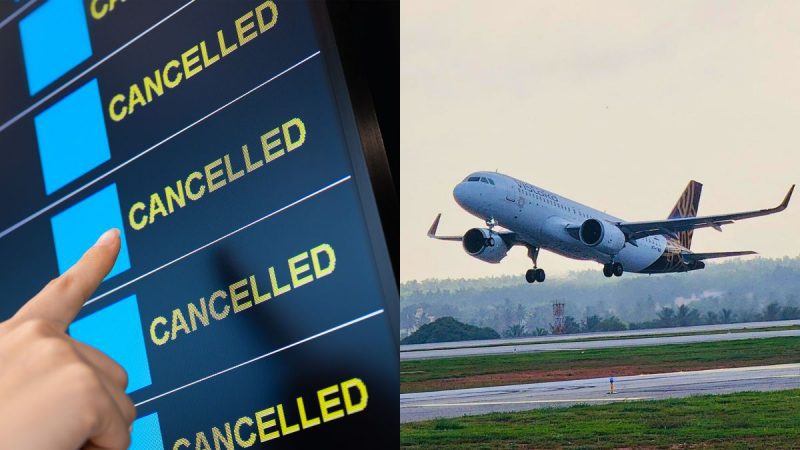Stranded at the airport after your flight got canceled? Many travelers found themselves in this situation recently when Delta and other U.S. airlines canceled thousands of flights due to a massive computer failure triggered by a faulty software update. The outage led to chaos, leaving passengers scrambling to reach their destinations during the busiest travel weekend of the year. While airlines have offered compensation through vouchers and extra points or miles, travelers must know their rights and have a strategy if their plans go awry. Here’s what to do if your flight gets canceled.

Understanding Your Right to a Refund
Federal regulations ensure that airline passengers are entitled to prompt refunds if flights are canceled. According to the U.S. Department of Transportation (DOT), when an airline cancels a flight, passengers are owed refunds and do not have to accept travel credits or tickets on other flights. This rule applies to all fare types, including non-refundable tickets, and covers add-ons like checked bag fees and paid seat upgrades.
Moreover, airlines must offer refunds if there are “significant” flight delays or schedule changes. The DOT determines entitlement to refunds on a case-by-case basis, considering factors such as the length of the flight and the nature of the delay. New federal rules effective in October specify that a “significantly changed” flight includes delays of at least three hours for domestic flights and at least six hours for international flights.
Airlines must refund passengers “promptly” after a cancellation or significant delay. The DOT defines “prompt” as within seven business days for credit card purchases and within 20 days for purchases made with cash or check. Transportation Secretary Pete Buttigieg emphasized that airlines must provide prompt refunds, free rebooking, timely reimbursements for food and hotel stays, and adequate customer service assistance.
Handling Incidentals and Baggage Issues
While airlines are not obligated to reimburse customers for incidental expenses like rental car, hotel, and meal costs incurred due to a flight cancellation, they have the discretion to cover such costs. Delta, for instance, has stated it will cover eligible expenses related to meal vouchers, hotel accommodations, and ground transportation. However, Delta will not reimburse prepaid expenses such as hotel reservations at the destination, vacation experiences, lost wages, or event tickets.
If you have checked a bag, you are entitled to a refund for checked bag fees and compensation for reasonable expenses incurred due to delayed luggage. DOT regulations require airlines to reimburse customers for “reasonable, verifiable, and actual incidental expenses.” Carriers may not set daily expenditure limits for delayed bags. Passengers can file lost baggage claims in person, on the airline’s website, or over the phone. Tracking down lost luggage can be challenging. Travel experts suggest placing an Apple AirTag or a similar device in your checked bags to monitor their location and assist airline agents in faster recovery.
Travel Tips for Avoiding Future Disruptions
To make your travel experience as smooth as possible, even during delays and cancellations, consider the following tips:
- Book the First Flight of the Day: Early flights generally have a higher chance of departing on time.
- Download the Airline’s App: This facilitates faster rebooking and updates on flight status.
- Travel Light: Only bring a carry-on to avoid the hassle of checking luggage and waiting in long bag drop lines.
- Choose Reliable Airlines: Research airlines with fewer cancellations using DOT performance data.

Being prepared and informed can significantly mitigate the stress and inconvenience of flight cancellations. Knowing your rights and having a backup plan will help ensure you reach your destination with minimal disruption.
